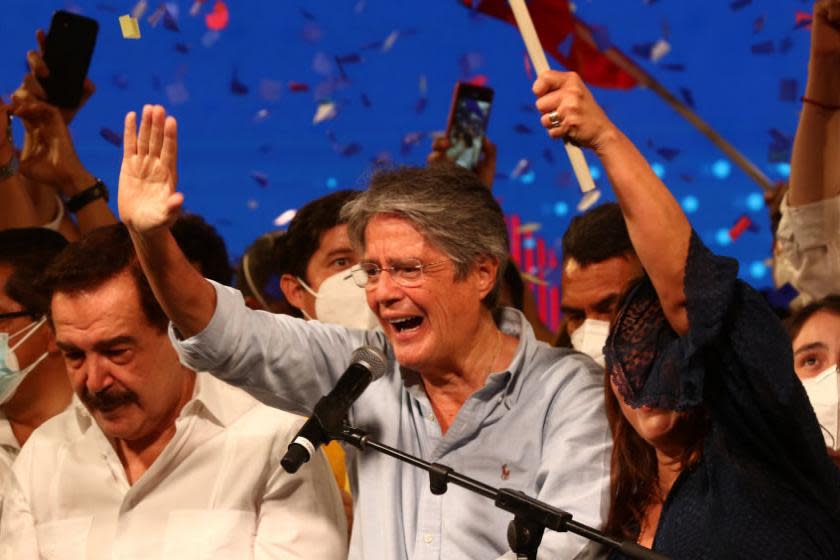Ecuador elects conservative ex-banker as president, while Peru voters deliver a split decision

- Oops!Something went wrong.Please try again later.
- Oops!Something went wrong.Please try again later.
- Oops!Something went wrong.Please try again later.
- Oops!Something went wrong.Please try again later.
Ecuador elected Guillermo Lasso, a conservative former banker, as its next president on Sunday, giving him about 52 percent of the vote in a runoff against Andrés Arauz, the handpicked candidate of leftist former President Rafael Correa. Arauz, a 36-year-old economist, conceded Sunday night. Lasso, 65, narrowly lost the 2017 election.
"For years, I have dreamed of the possibility of serving Ecuadorians so that the country progresses, so that we can all live better," Lasso said Sunday night. "Today, you have resolved that this be so." He will be sworn in May 24. Correa, who governed from 2007 to 2017, congratulated Lasso from Belgium, where he is living in exile to avoid jail after being convicted of corruption in absentia. "Your success will be Ecuador's," Correa said. "I just ask that he stops the lawfare, which destroys lives and families."
Lasso, a member of the conservative Catholic group Opus Dei, has pledged to raise the minimum wage and promote foreign investment in mining and oil sectors, among other changes. He inherits a weak economy and bad COVID-19 outbreak, and he will likely face resistance from the National Assembly. Lasso barely finished in second place in the first round of voting, narrowly edging out environmentalist Yaku Pérez.
Peru also went to the polls Sunday to elect a new president and Congress. Voters appear to have selected socialist candidate Pedro Castillo for the June runoff, where he will face one of two conservative candidates: right-wing economist Hernando de Soto or Keiko Fujimori, the daughter of polarizing former strongman Alberto Fujimori.
Political analysts don't give the eventual winner great odds of finishing his or her term, given the impeachment-happy Congress and Peru's recent history. "The country's political chaos reached a new level in November, when three men were president in a single week after one was impeached by Congress over corruption allegations and protests forced his successor to resign in favor of the third," The Associated Press notes. "All former Peruvian presidents who governed since 1985 have been ensnared in corruption allegation, some imprisoned or arrested in their mansions. One died by suicide before police could arrest him."
More stories from theweek.com
Trump finally jumps the shark
7 brutally funny cartoons about Mitch McConnell's corporate hypocrisy
Biden gets positive GOP reviews after infrastructure meeting, a hard no on corporate tax hike

